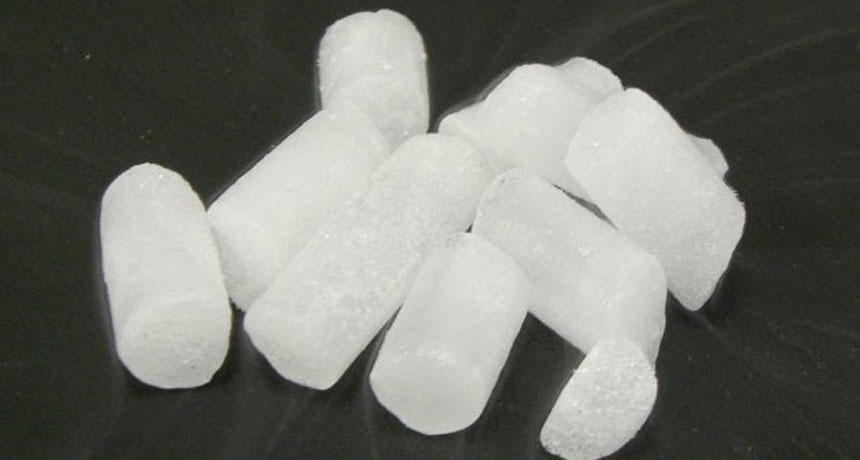carbon The chemical element having the atomic number 6. It is the physical basis of all life on Earth. Carbon exists freely as graphite and diamond. It is an important part of coal, limestone and petroleum, and is capable of self-bonding, chemically, to form an enormous number of chemically, biologically and commercially important molecules.
carbon dioxide (or CO2) A colorless, odorless gas produced by all animals when the oxygen they inhale reacts with the carbon-rich foods that they’ve eaten. Carbon dioxide also is released when organic matter (including fossil fuels like oil or gas) is burned. Carbon dioxide acts as a greenhouse gas, trapping heat in Earth’s atmosphere. Plants convert carbon dioxide into oxygen during photosynthesis, the process they use to make their own food.
evaporate To turn from liquid into vapor.
liquid A material that flows freely but keeps a constant volume, like water or oil.
matter Something which occupies space and has mass. Anything with matter will weigh something on Earth.
plasma (in chemistry and physics) A gaseous state of matter in which electrons separate from the atom. A plasma includes both positively and negatively charged particles. (in medicine) The colorless fluid part of blood.
solid Firm and stable in shape; not liquid or gaseous.
solid state A term for electronics technologies that create circuitry or devices from solid materials known as semiconductors. As they work, their electrons (or other charge carriers) remain confined entirely within the solid material.








